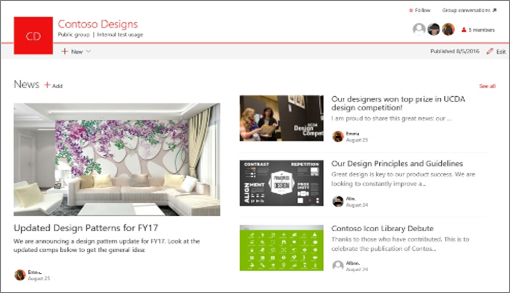The Main Principles Of International News Online
The Main Principles Of International News Online
Blog Article
The 7-Second Trick For International News Online
Table of ContentsThings about International News OnlineThe smart Trick of International News Online That Nobody is Talking AboutHow International News Online can Save You Time, Stress, and Money.Some Known Facts About International News Online.The Basic Principles Of International News Online
The platform's name adjustment occurred in July 2023.) Some social networks sites regardless of having fairly small total audiences stand out for having high shares of users that on a regular basis go to the website for news. About fifty percent of users on X (53%) obtain news there. On the other hand, just 15% of Snapchat users regularly obtain information on the application.
, Sept
When asked whether social media is a great or negative thing for freedom in their country, a mean of 57% throughout 19 nations say that it is an excellent thing. In nearly every country, close to half or more claim this, with the sentiment most common in Singapore, where about three-quarters think social media is an excellent thing for democracy in their country.
And in the united state, only around a 3rd think social media sites is positive for democracy the tiniest share among all 19 nations checked. In eight nations, those that believe that the political system in their country permits them to have an influence on national politics are also more probable to state that social media sites is a good thing for democracy.
Those who see the spread of incorrect info online as a major danger to their nation are much less likely to claim that social media is an advantage for democracy, compared to those that watch the spread of false information online as either a small threat or otherwise a danger in all.
International News Online - An Overview
This pattern appears in 8 various other countries also. Views also differ by age. Older grownups in 12 nations are much less likely to say that social media sites is an excellent point for freedom in their country when compared to their more youthful counterparts. In Japan, France, Israel, Hungary, the UK and Australia, the gap between the youngest and earliest age is at the very least 20 percent points and ranges as high as 41 points in Poland, where almost nine-in-ten (87%) more youthful grownups claim that social media has been a good idea for freedom in the country and only 46% of grownups over 50 say the exact same.
Across the 6 issues checked, few often tend to state they see no adjustments as a result of increased connectivity instead seeing points altering both favorably and negatively and frequently both at the very same time (International News Online). A mean of 84% claim technical connection has made individuals less complicated to adjust with incorrect info and reports the most amongst the 6 concerns checked
Undoubtedly, click to find out more in a lot of countries, those who think social media sites has actually made it much easier to control individuals with false information and rumors are likewise more probable to believe that social media sites has made people much more notified. When it involves national politics, the internet and her latest blog social media are usually seen as disruptive, with a typical of 65% claiming that individuals are now much more split in their political opinions.
Little Known Facts About International News Online.
This sense of risk is associated with the widespread idea that individuals today are now simpler to adjust with false details and rumors many thanks to the internet and social media. Around half or more in every nation checked shares this sight. And in position like the Netherlands, Australia and the UK, around nine-in-ten see people as even more manipulable.
In South Korea, 90% of those under age 30 say social media makes people easier to adjust, compared with 65% of those 50 and older. (Remarkably, U.S.-focused research study has discovered older adults are much more most likely to share misinformation than younger ones.) People with even more education are likewise commonly more probable than those with much less education and learning to say that social media sites has brought about people being simpler to manipulate.

The Buzz on International News Online
In Sweden, Japan, Greece and the Netherlands, around eight-in-ten or more share this sight, while in Malaysia, a smaller sized bulk (56%) says the very same. More youthful adults tend to see social networks Discover More making people more educated than older grownups do. Older adults, for their part, do not necessarily see the net and social networks making people less educated about what's taking place in their nation; instead, they're rather more probable to describe these systems as having little impact on people's details degrees.

Report this page